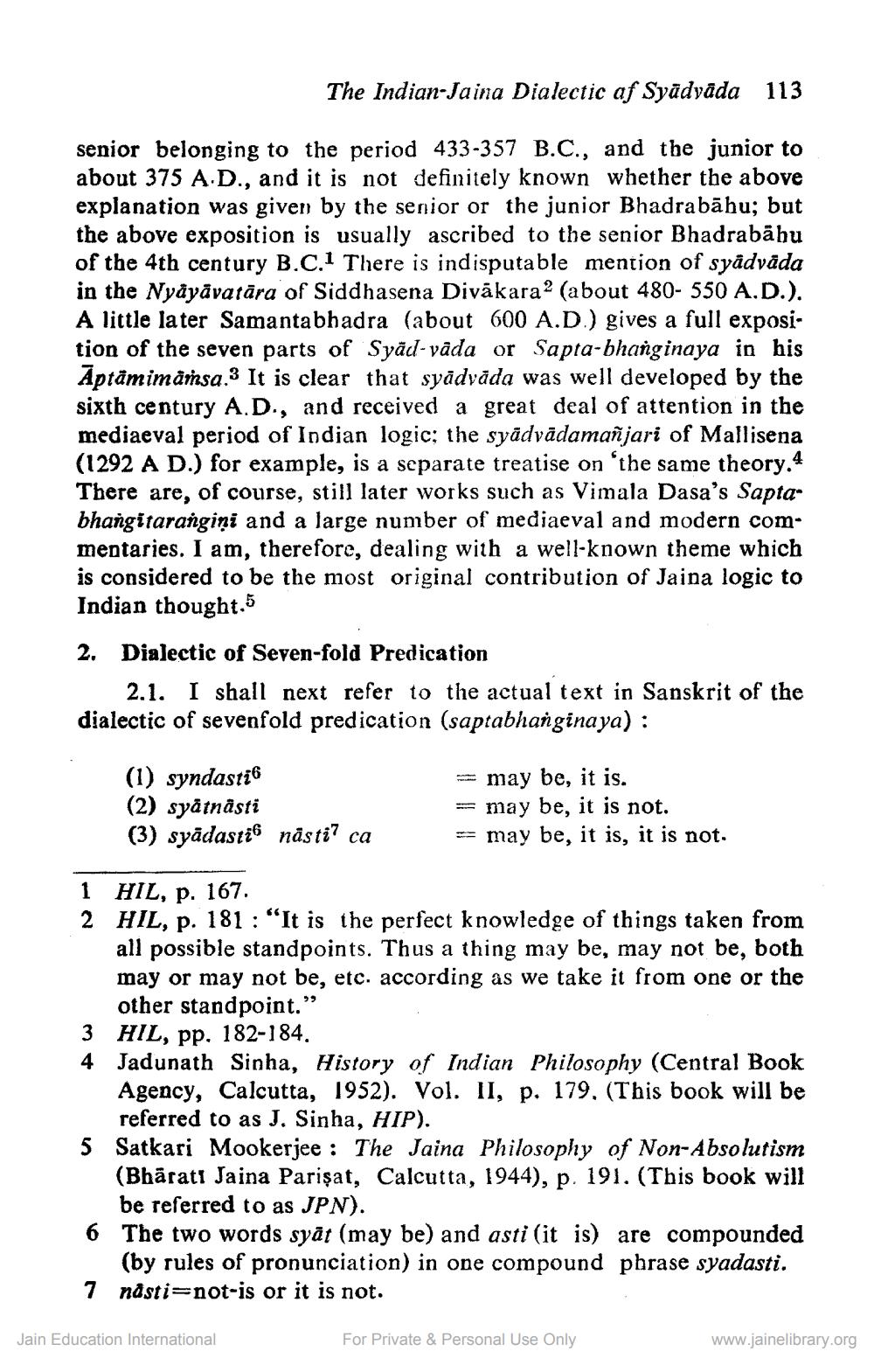________________
The Indian-Jaina Dialectic af Syādvāda 113
senior belonging to the period 433-357 B.C., and the junior to about 375 A.D., and it is not definitely known whether the above explanation was given by the senior or the junior Bhadrabahu; but the above exposition is usually ascribed to the senior Bhadrabāhu of the 4th century B.C.1 There is indisputable mention of syādvāda in the Nyāyāvatāra of Siddhasena Divākara2 (about 480- 550 A.D.). A little later Samantabhadra (about 600 A.D.) gives a full exposition of the seven parts of Syäd-vāda or Sapta-bhanginaya in his Aptämimämsa.3 It is clear that syādvāda was well developed by the sixth century A.D., and received a great deal of attention in the mediaeval period of Indian logic; the syādvādamañjari of Mallisena (1292 A D.) for example, is a separate treatise on 'the same theory.4 There are, of course, still later works such as Vimala Dasa's Sapta bhangitarangini and a large number of mediaeval and modern commentaries. I am, therefore, dealing with a well-known theme which is considered to be the most original contribution of Jaina logic to Indian thought.5
2. Dialectic of Seven-fold Predication
2.1. I shall next refer to the actual text in Sanskrit of the dialectic of sevenfold predication (saptabhanginaya):
(1) syndasti (2) syätnästi
(3) syādasti nästi ca
may be, it is.
may be, it is not.
may be, it is, it is not.
1 HIL, p. 167.
2 HIL, p. 181: "It is the perfect knowledge of things taken from all possible standpoints. Thus a thing may be, may not be, both may or may not be, etc. according as we take it from one or the other standpoint."
3 HIL, pp. 182-184.
4 Jadunath Sinha, History of Indian Philosophy (Central Book Agency, Calcutta, 1952). Vol. II, p. 179. (This book will be referred to as J. Sinha, HIP).
5 Satkari Mookerjee: The Jaina Philosophy of Non-Absolutism (Bharati Jaina Parişat, Calcutta, 1944), p. 191. (This book will be referred to as JPN).
6 The two words syāt (may be) and asti (it is) are compounded (by rules of pronunciation) in one compound phrase syadasti. 7 nåsti-not-is or it is not.
Jain Education International
For Private & Personal Use Only
www.jainelibrary.org




